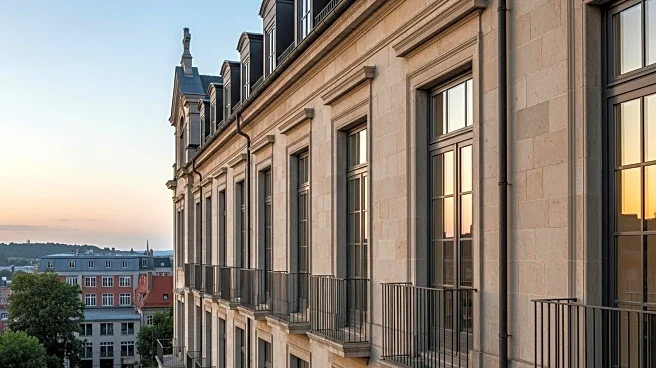What's Happening?
As more churches close or consolidate, their properties are becoming available for purchase, presenting unique opportunities for conversion into homes. These properties, often rich in historical and emotional value, require careful consideration regarding zoning laws, historical designations, and conservation restrictions. The YIGBY movement advocates for easing zoning barriers to facilitate housing development on church grounds, viewing these properties as valuable community assets. Buyers must navigate complex evaluations and financing requirements, as converting a church into a home involves assessing structural integrity and potential renovation costs.
Why It's Important?
The availability of church properties for conversion into housing addresses the growing need for affordable housing solutions. By repurposing these spaces, communities can preserve historical structures while meeting housing demands. This trend could significantly impact urban development and housing markets, offering innovative solutions to housing shortages. However, it also raises challenges related to zoning and financing, requiring careful planning and community engagement.
What's Next?
As more church properties become available, potential buyers and developers will need to engage with local communities and stakeholders to navigate zoning and legal challenges. Successful conversions could set precedents for future projects, influencing urban planning and housing policies. The movement towards utilizing church properties for housing may also inspire similar initiatives in other sectors, promoting sustainable and community-focused development.










